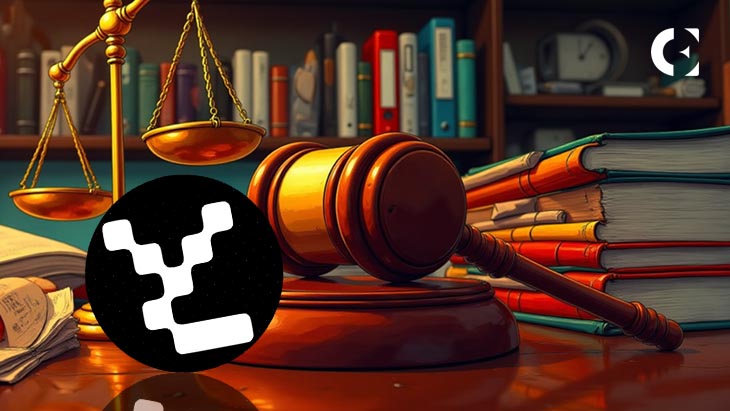- Court rules Bored Ape NFTs not securities, ending Yuga Labs class-action case.
- Judge finds no common enterprise for NFTs sold on third-party platforms like OpenSea.
- Royalties show Yuga’s profits independent of holder gains, weakening the SEC’s argument.
A federal court in California has ruled that Bored Ape Yacht Club (BAYC) NFTs are not securities, closing a class-action lawsuit that had challenged the legal status of one of the most well-known digital collectible projects. The decision ends years of uncertainty surrounding Yuga Labs’ compliance with U.S. securities law and marks one of the simplest judicial statements yet on non-fungible tokens’ (NFTs) regulatory classification.
Judge Fernando M. Olguin of the U.S. District Court for the Central District of California dismissed the lawsuit against Yuga Labs, concluding that Bored Ape NFTs do not satisfy the legal requirements of a security under the Howey test. The ruling, issued Thursday, found no “common enterprise” linking NFT holders’ financial success to Yuga Labs’ operations.
The court stated that the NFTs were purchased through third-party marketplaces such as OpenSea and Coinbase, rather than an exchange operated by Yuga Labs. This difference distinguishes BAYC from prior cases, such as Dapper Labs’ NBA Top Shot NFTs and DraftKings NFTs, where courts found closer operational ties between issuers and secondary market activity.
Related: U.S. Court Mandates Ryder Ripps to Pay Yuga Labs $9 Million in Final Judgment
Royalties Undermine Common Financial Interest
Olguin’s ruling also noted that Yuga Labs’ receipt of royalties from secondary NFT sales further weakens any alleged shared financial structure. The company earned a fixed fee each time a Bored Ape changed hands, regardless of whether the buyer made a profit or incurred a loss. This arrangement, the judge stated, “decoupled” the financial interests of NFT holders and the company.
Creator royalties, which can reach up to 10% of each resale, have been a standard feature across NFT markets. In this case, the court found that such royalties pointed away from the existence of an investment contract since Yuga Labs benefited from sales activity without relying on holders’ speculative gains.
The decision follows multiple investigations into NFT projects by U.S. regulators. Earlier this year, the Securities and Exchange Commission (SEC) closed inquiries into both Yuga Labs and OpenSea, signaling a shift toward limited enforcement in the NFT sector.
Related:Bored Ape Yacht Club NFT Floor Price Hit Historic Low, Down 92%
Disclaimer: The information presented in this article is for informational and educational purposes only. The article does not constitute financial advice or advice of any kind. Coin Edition is not responsible for any losses incurred as a result of the utilization of content, products, or services mentioned. Readers are advised to exercise caution before taking any action related to the company.







